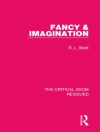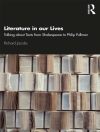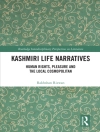Taking a fresh approach to Byron, this book argues that he should be understood as a poet whose major works develop a carefully reasoned philosophy. Situating him with reference to the thought of the period, it argues for Byron as an active thinker, whose final philosophical stance – reader-centred scepticism – has extensive practical implications.
Tabela de Conteúdo
Acknowledgements List of Abbreviations Introduction Philosophies, Skepticism, and Morals: The Background in Enlightenment Travelling on Stony Ground: Childe Harold I and II and the Beginning of Byronic Knowing Worse than Faithless: Plenitude and the Loss of Knowledge in The Giaour Talking Turkey: Unmasking Knowledge in the Last of the Eastern Tales Travelling on Stormy Seas: Childe Harold III and the Difficulties of Development Knowing on Demand: Staging Knowledge-Claims in Manfred’s ‘Mental Theatre’ ‘A lively reader’s fancy does the rest’: Don Juan and the Certainty of Doubt Reckoning Up Notes Works Cited Index
Sobre o autor
EMILY A. BERNHARD JACKSON is Assistant Professor of Nineteenth-Century British Literature at the University of Arkansas, USA, and a Visiting Fellow at Wolfson College, Cambridge, UK. She has written essays on Byron and on Edmund Spenser, as well as the introduction for the
Broadview Anthology of British Literature: The Age of Romanticism.












